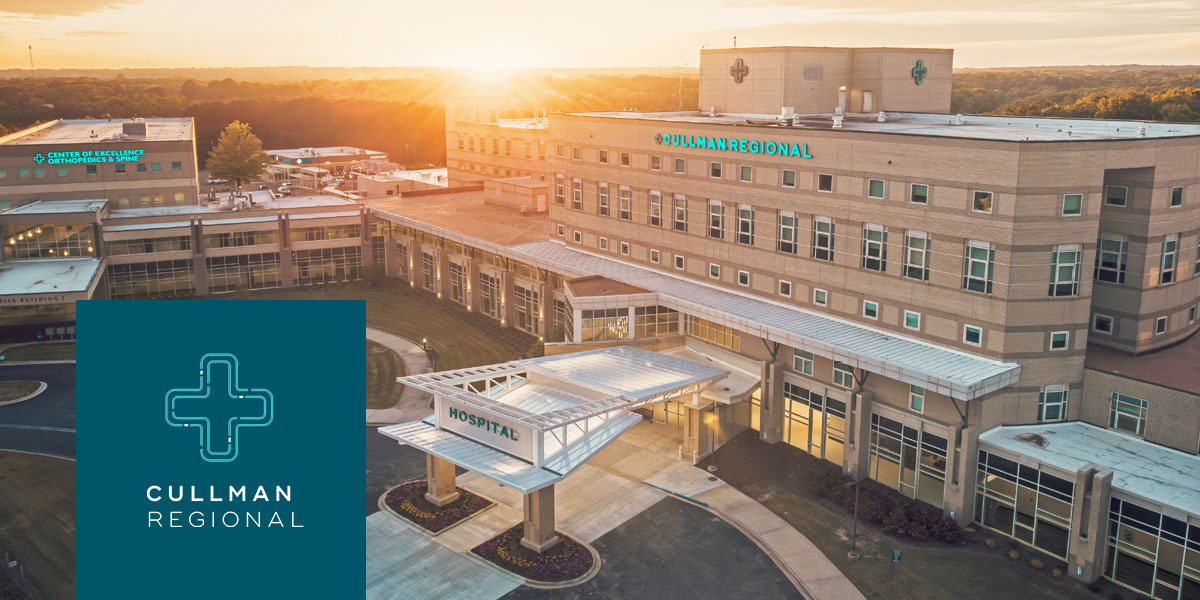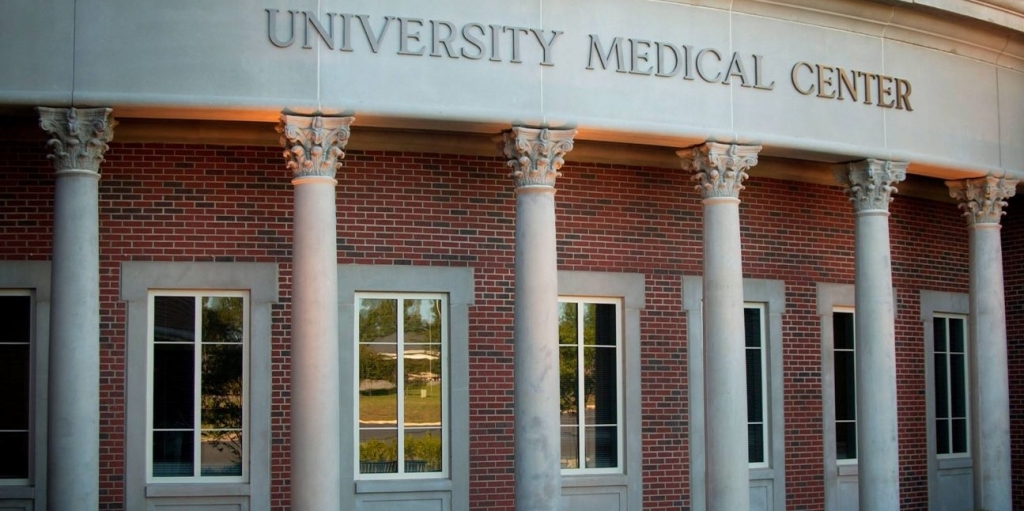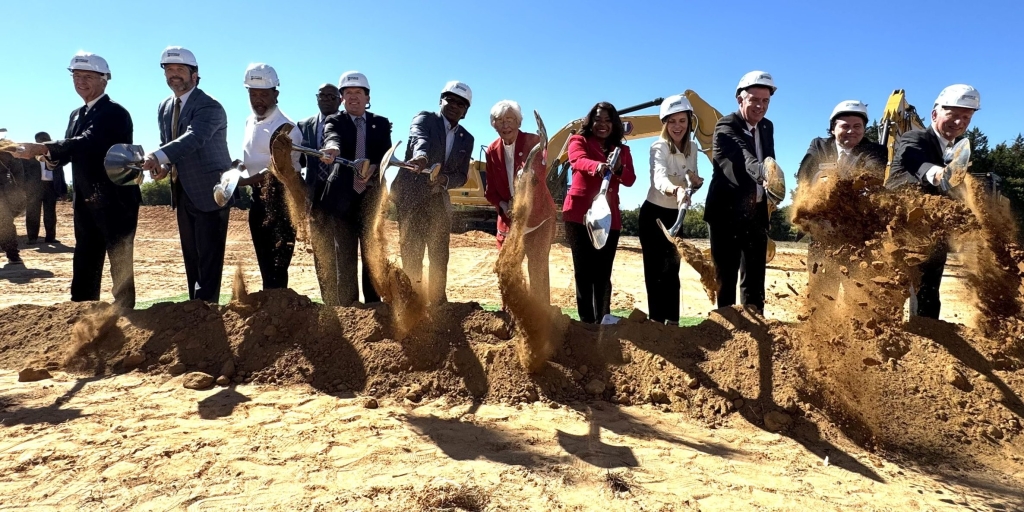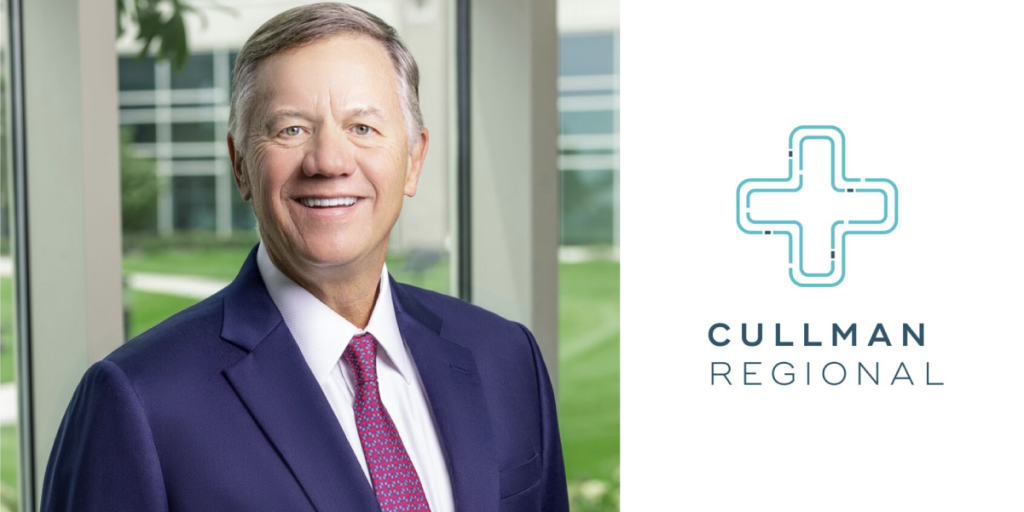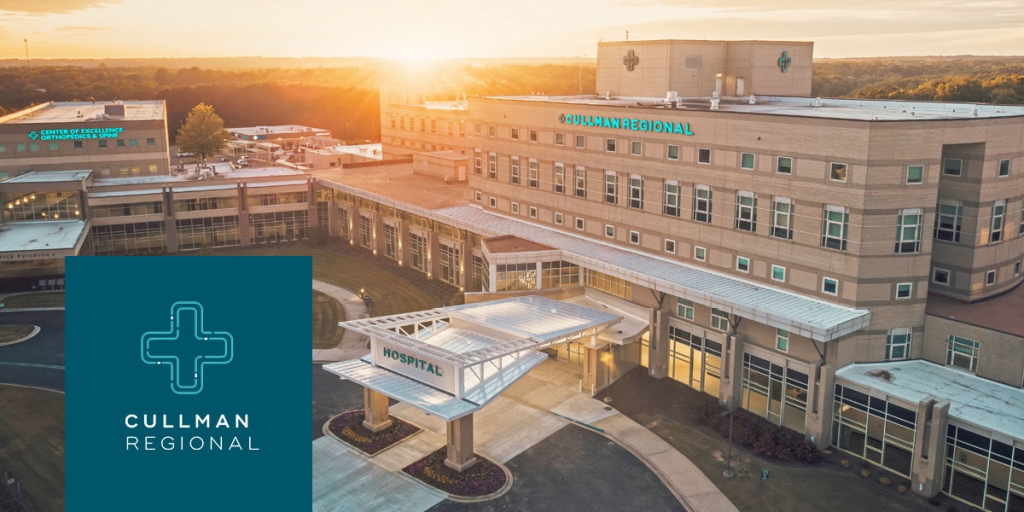Fifty-five miles south of Huntsville and 50 miles north of Birmingham lies Cullman, a thriving community of 45,000 residents. A city of this size requires exceptional healthcare, accessible to all who call the region home.
That’s where Cullman Regional Medical Center plays a critical role. As an independent, community-driven hospital, Cullman Regional is not only providing top-tier healthcare services but also strengthening the local economy and reinforcing its deep-rooted commitment to the people it serves.
A Legacy of Independence and Growth
Founded in 1939, Cullman Regional is a not-for-profit hospital owned and operated by the Healthcare Authority of Cullman County. Unlike hospitals in nearby metropolitan areas, which are often part of larger healthcare systems, Cullman Regional maintains full autonomy—allowing it to make swift, localized decisions that best serve the community.
Twenty years ago, Cullman Regional was part of Alabama’s Baptist Health System, but the Healthcare Authority recognized the value of being an independent hospital and purchased the remaining 50% interest held by Baptist. Over the last 15 years, the hospital has invested more than $185M in capital projects including major expansions in 2018 and 2023 that increased its capacity to 175 acute-care hospital beds. Additional capital projects have added new services or enhanced clinical capabilities at Cullman Regional, enabling it to offer high quality and advanced healthcare locally.
Today, the hospital serves Cullman County and six neighboring counties—Blount, Marshall, Morgan, Lawrence, Winston and Walker.
The Value of Independent Hospitals
The advantages for communities with strong, independent hospitals are numerous. From local access to quality care to significant economic impact, the benefits can be dramatic.
Localized Decision-Making – Independent hospitals can act in the best interest of the local community rather than adhering to corporate policies set by distant healthcare executives. This authority over operations and finance also means capital resources stay local and are not redistributed among system hospitals in other communities.
Patient-Centered Care –With decision-making power at the local level, independent hospitals can focus on providing care centered around what the local community needs. In Alabama, there is no better example of why this matters than the recent closings of maternity and OB care facilities.
Financial Control – An independent hospital directs its own financial resources, ensuring revenue is re-invested locally for improved facilities, advanced technology and top clinical talent. There is no obligation to external constraints or a corporate purse.
Economic Impact – Community hospitals are more than healthcare providers. They are also employers providing stable, well-paying jobs while supporting local businesses and vendors. When independent hospitals are successful and able to grow, they serve as a critical lifeline for local economies.
Strong Community Ties – Being a good community partner stems from relationships where hospitals collaborate with local businesses, schools, and nonprofits. Independent hospitals have the freedom to engage in their communities to strengthen healthcare services and align with community priorities.
Physician Autonomy – Doctors and staff have greater influence over policies and patient care decisions, fostering a collaborative and responsive healthcare environment.
Rapid Response to Change – Healthcare is a challenging industry that increasingly requires the ability to respond quickly to changes and advances in the delivery of medical care. With decision makers at the local level, independent hospitals can act without bureaucratic delays.
Economic and Community Impact
As the county’s largest employer, Cullman Regional is more than just a healthcare provider; it’s a cornerstone of Cullman’s economy, contributing $375M in economic impact annually. The hospital’s dramatic growth over the last ten years has doubled the hospital’s revenue and number of employees. Today, the hospital has 1,600 employees including 450 nurses and 120 medical staff physicians.
On average, Cullman Regional provides $53M of medical care annually to uninsured and underinsured patients. This includes an annual donation of more than $1.2 million in cash and service contributions to the Good Samaritan Clinic that provides non-emergent medical care and medication assistance for non-insured residents. This philanthropic effort, alongside numerous other community initiatives, exemplifies the hospital’s dedication to serving the local community.
Advancing Patient Care with Innovation
Cullman Regional continually enhances its services to provide innovative, effective care. A recent major milestone was the opening of its Neonatal Intensive Care Unit (NICU). The addition of a fourth OB-GYN doctor, six neonatologists, and four neonatal nurse practitioners has significantly enhanced the hospital’s ability to care for women and children including premature and critically ill newborns—eliminating the need for families to travel long distances for specialized neonatal care. High-level neonatal services are now available 24/7, 365 days a year.
Furthering its regional impact, the hospital also expanded into Morgan County with a freestanding emergency department in Hartselle. This facility includes 10 treatment rooms, a trauma room, a helipad, an ambulance bay, and an imaging center fully equipped with CT, X-ray, and ultrasound technology—ensuring that residents in surrounding areas have access to emergency medical services close to home.
Looking to the Future
Under the leadership of CEO James Clements, Cullman Regional’s strategy of focusing on improved quality, increasing revenue, and decreasing costs has secured the hospital’s financial stability and growth. His leadership and expertise in healthcare management have earned him a place on Governor Kay Ivey’s Statewide Health Coordinating Council (SHCC), a testament to his impact on Alabama’s healthcare landscape.
Cullman Regional continues to adapt and expand, with ongoing investments in:
- Facility Growth – Recent expansions include the NICU and Hartselle Health Park freestanding emergency department.
- More Specialists – The hospital has recruited two new urologists to the community, Dr. Louis Remynse and Dr. Leor Arbel, to meet growing patient demand.
- Technological Advancements – Cullman Regional remains competitive by integrating an new electronic health record (EHR) system, advanced diagnostic imaging and robotic surgery technology.
- Financial Sustainability – The hospital is committed to the strategy it put in place ten years ago which has enabled it to grow and be successful. The pillars of this strategy–business efficiency and a commitment to quality care—ensure Cullman Regional’s long-term stability.
A Hospital That Cares—and Thrives
Cullman Regional is proof that independent hospitals can be successful and provide quality healthcare. By staying true to its mission and community-first approach, the hospital is building a legacy of excellence, adaptability, and service.
The little hospital that could—and did—continues to set the standard for what a thriving, independent hospital can achieve. Cullman Regional serves as a leader in Alabama’s healthcare industry and brings value through local quality healthcare services, economic growth, and community engagement.




